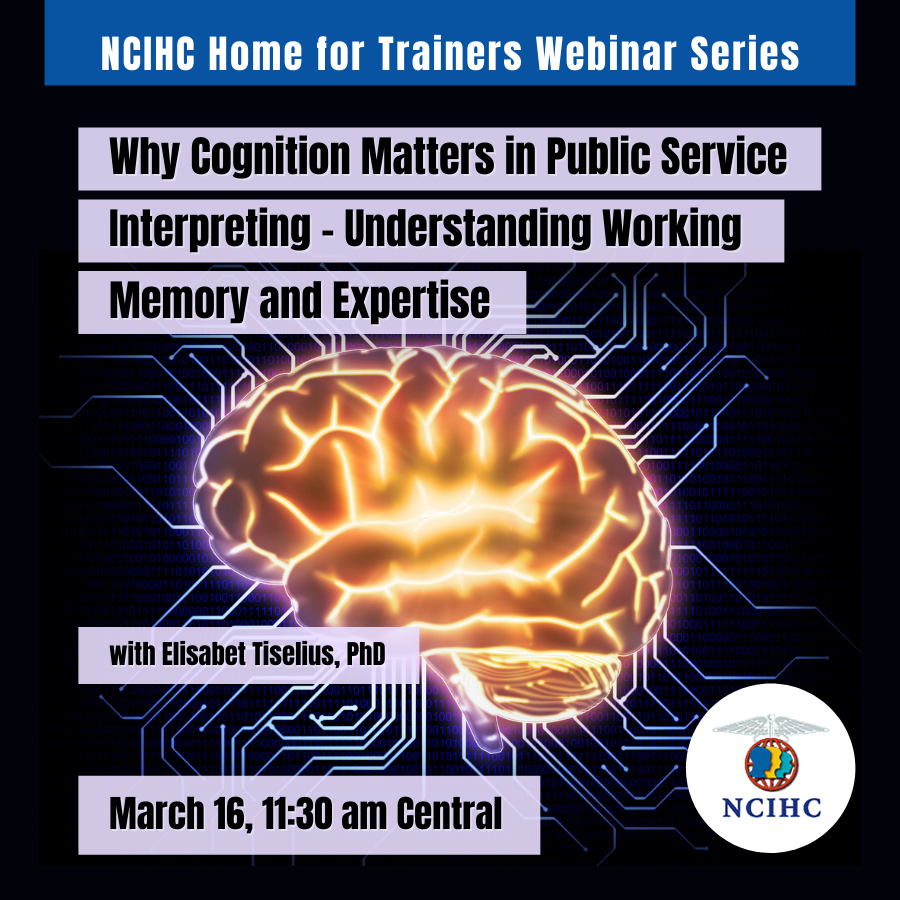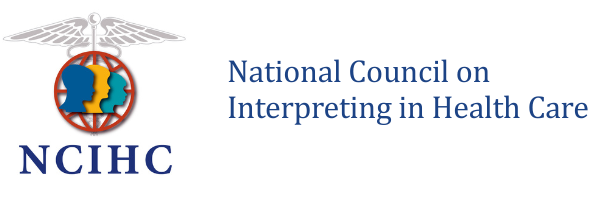|
Webinar #52
|

|
|
This 90-minute webinar took place on March 16, 2022
at 12:30 PM Eastern / 11:30 AM Central / 9:30 AM Pacific.
This webinar was recorded. The recording will only be available through the NCIHC Learning Center. Once the recording is available, individuals will need to submit a separate registration form to view the recording, including those who registered for the live broadcast. Recordings are free for NCIHC members and $30 for non-members.
Register to view the recording of this webinar by clicking on the link below.
|

Continuing Education Credits
CCHI 1.5 instructional hours
IMIA/NBCMI 0.15 CEUs
ATA 1 CEP
|
Why Cognition Matters in Public Service Interpreting – Understanding Working Memory and Expertise
Description:
In this webinar, we explore cognitive aspects of public service interpreting. I discuss with the interpreters what working memory is, why it is important for public service interpreting. I also describe how working memory can be studied, and discuss if and how interpreters can improve working memory. I give examples from my research and my own practice.
I also describe the concept of monitoring and how public service interpreters can benefit from understanding and applying the concept in their practice. I show examples of different types of monitoring and show how interpreters use them to contribute to understanding and smoothly support the conversation.
Finally, I approach the theories of expertise and deliberate practice. When exploring these theories, I present the idea of the professional self-concept and discuss with the interpreters how that can change with experience and expertise. Once again, I show examples of how the professional self-concept contributes to how the interpreter handles different situations.
After this webinar, you can give examples of how working memory supports interpreting. You can also explain what monitoring is in interpreting. You are familiar with expertise and deliberate practice, and you strengthen your own professional self-concept.
Learning Objectives:
-
Explain the concepts of cognition, working memory, monitoring, expertise, deliberate practice, and professional self-concept in the context of interpreting.
-
Describe the relevance of those concepts to interpreting and interpreter training.
-
Understand ways in which these concepts and related theoretical frameworks can inform interpreter training.
|
About the Presenter:

Elisabet Tiselius, PhD
Elisabet Tiselius; associate professor of interpreting studies at Stockholm University; member of AIIC (serves on the research committee); accredited to the EU-institutions; state authorized public service interpreter.
Tiselius leads Stockholm Process Research in Interpreting and Translation (SPRINT) for cognitive aspects of interpreting and translation (VR grant 2016-01118), is affiliated to the MC2lab at university of Bologna, Forlí, is member of TREC-network management committee, and board member of the European Society for Translation Studies. She is also affiliated to Karolinska Institutet and to Western Norway University of Applied Sciences (leader of work-package for Norwegian research council funded project, DEPICT). Tweets @tulkur
|
|





